In the world of Zen, stillness is not emptiness — it’s presence.
This page gently explores Japanese onomatopoeia that echo the quiet, mindful spirit of Zen.
What Is Zen, Exactly?
Zen is not about thinking harder — it’s about letting go.
It encourages us to clear away the unnecessary and pay attention to the here and now.
- Origins: India → China → Japan
- Philosophy: Simplicity, direct experience, inner stillness
- Aesthetic Values: Kū (emptiness), Ma (space), Wabi-sabi (beauty in imperfection)
In Zen practice, silence is not the absence of sound —
it’s the mirror of the mind.
Sounds That Breathe in Zen
Zen is full of sound — not loud or dramatic, but natural, fleeting, essential.
The rustle of leaves, a kettle slowly boiling, the hush of a breath… these are all part of the Zen landscape.
Some examples include:
- fuwa fuwa(ふわふわ) — soft air or moss
- toku toku(とくとく) — the sound of sake being poured
- chirin(ちりん) — the ring of a wind chime
- kasa(かさっ) — dry leaves shifting beneath your feet
Each of these sounds invites you to notice the moment.
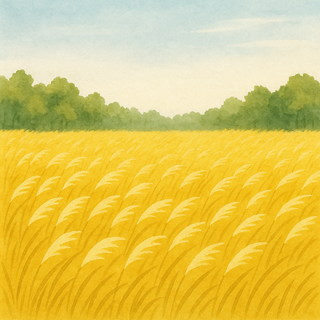
Japanese Onomatopoeia and the Zen Mind
Japanese onomatopoeia captures not only sound, but emotion, atmosphere, and silence itself.
| Onomatopoeia | Meaning | Zen Connection |
|---|---|---|
| shiiin(しーん) | total silence | the stillness in a meditation hall |
| shinto(しん) | deep hush | snow falling at night, or a forest at dawn |
| suu(すーっ) | soft inhale | mindful breathing during zazen |
| fuuu(ふうう) | soft exhale or sigh | release, relief, surrender |
| potsun(ぽつん) | standing alone, quietly | a figure in solitude, like a monk in a vast garden |
| ton(とん) | a light tap | a sudden realization, a bell, or a wooden block in ritual |
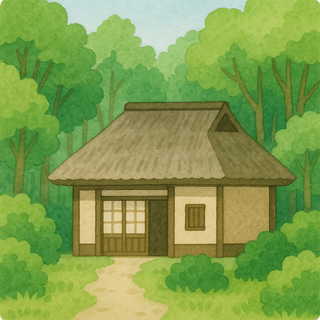
Want to Go Deeper?
Visit the following related pages:

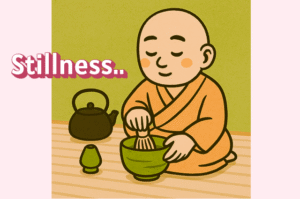
Zen begins not with action, but with attention.
If you listen closely, even silence can sparkle.

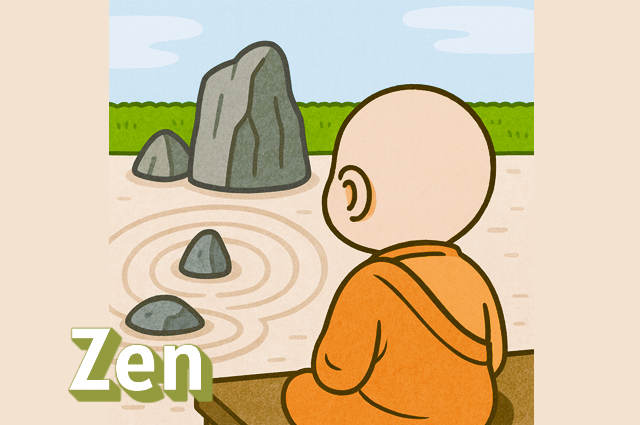
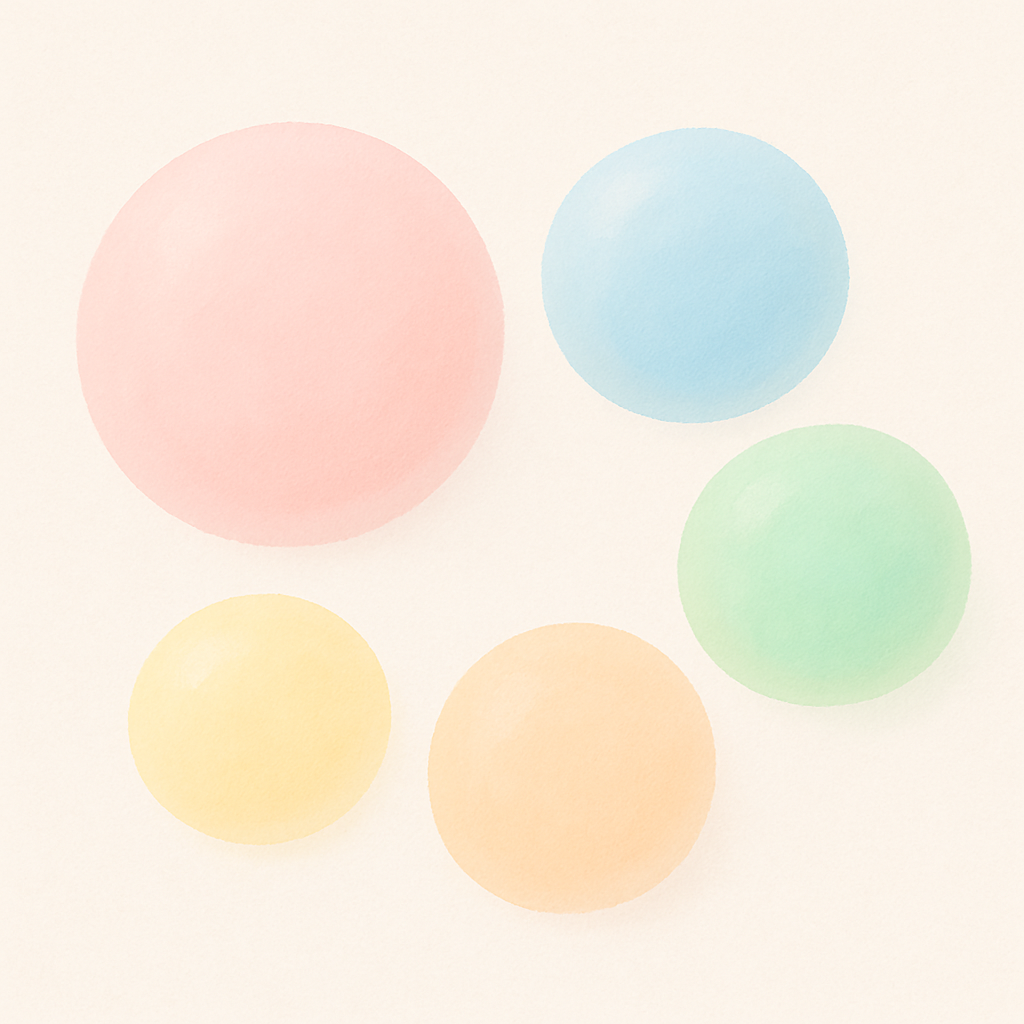


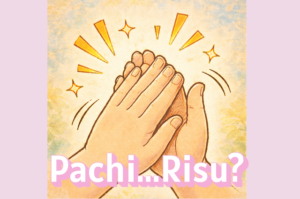






Comments